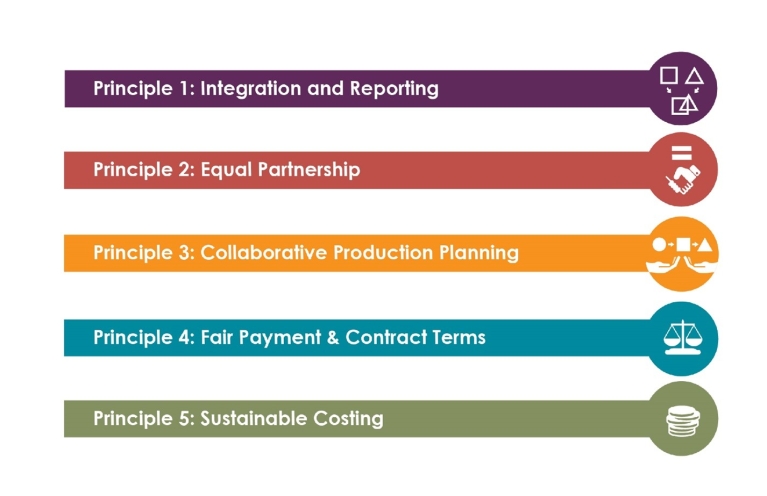This resource hub is structured around the five principles of the Common Framework for Responsible Purchasing Practices (CFRPP).
The Common Framework offers a shared language on responsible purchasing through its five core principles. These principles are designed to help you to engage effectively with stakeholders and take practical steps toward creating an enabling environment for fair labour standards across your supply chains.
The five principles of the CFRPP

The five principles of the Common Framework are relevant across the apparel and footwear industry.
Frameworks have also been developed for the food sector and wider manufacturing industries. Under each principle, you’ll find suggested practices to implement and build upon as you work to embed responsible purchasing within your business.
Just as there are many types of brands, retailers, products, and suppliers, there are also many ways of doing business. A practice that works well in one context may create unintended pressure in another. That’s why it’s essential to engage with your suppliers to identify approaches that work within your operational realities—ensuring you collaborate to create decent conditions for workers in your supply chains.
- Use the Common Framework as a reference to help structure conversations with internal teams and suppliers.
- Consider how the practices apply within your specific context.
- Prioritise action where it’s most needed—don’t try to tackle the entire framework at once.
- Adapt the practices as needed to best support the ultimate goal: improving conditions for workers in your supply chains.
Groundwork and progress practices:
For each principle, the practices are presented in two stages: groundwork and progress.
This structure supports a gradual, staged approach to implementation—whatever your starting point.
The Common Framework for Responsible Purchasing Practices (CFRPP) was developed in 2022 by the Ethical Trading Initiative, Ethical Trade Norway, the German Partnership for Sustainable Textiles (PST) and Fair Wear.
